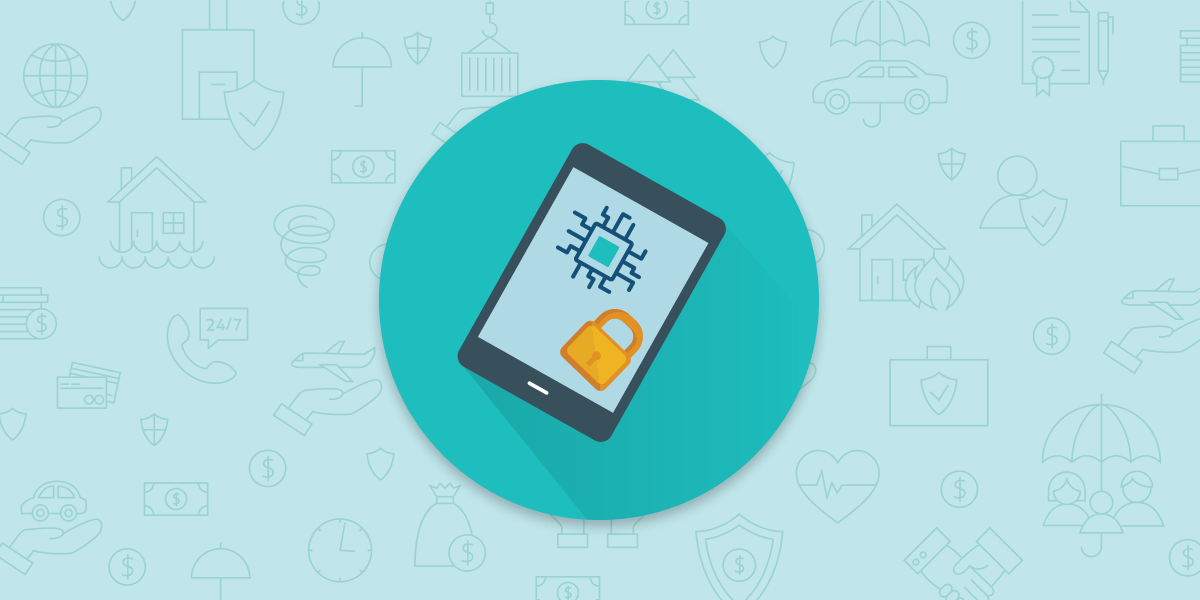
If you think cyber liability coverage is an insurance policy that only tech companies need, you’re leaving your business at risk. Today’s business owners need to protect themselves against the risk of cyber threats from targeted cyber attacks or simply lost or stolen data. It doesn’t matter what type of business you operate, cyber liability insurance is a modern solution to today’s biggest business threats.
Here’s what you need to know about cyber liability insurance for your business.
Who Needs Cyber Liability Coverage?
The short answer? Almost everyone can benefit from cyber coverage.
You don’t have to be a tech company to collect or store data. There’s a very good chance that you are the custodian of very sensitive information. Does your business accept credit or debit card payments? Do you keep electronic records containing client information, such as names, phone numbers, and addresses? Do you use laptops, tablets, smartphones, or desktop computers? Then you’ve got data that’s at risk.
Your existing business insurance policies are designed to protect you against many physical and financial losses, like your general liability and commercial property policies. But these policies aren’t designed to protect your business in the event of a data breach.
How Does Cyber Liability Work?
Cyber liability coverage is designed to help you with the costs associated with a data breach, such as a lost laptop containing client information or a hacked point-of-sale system.
Cyber liability generally covers costs associated with an incident including:
- Investigations
- Business losses and downtime
- Data recovery
- Cyber extortion reimbursement
- Customer notifications and credit monitoring
- Lawsuits arising from the incident
- Regulatory fines or penalties
If you still don’t think you could benefit from cyber protection, keep reading. Because data loss could happen to any business, anywhere. And you’ll never believe who’s most at risk.
Small Businesses Benefit the Most from Cyber Coverage
The consequences of a cyber attack or lost data can be disastrous for a small business. According to a Kaspersky report, the average cost of a small business data breach is $38,000. That’s just the direct cost of an attack; indirect costs average another $8,000 in addition.
Could your business afford to pay over $40,000 for one incident?
More than half of businesses can’t afford a single data breach. According to the US National Cyber Security Alliance, 60% of small businesses have to close their doors after a cyber attack.
More than half a billion records were lost or stolen due to data breach attacks last year. Small businesses are big targets - small businesses simply don’t have the same resources as larger corporations to protect and defend against attacks. Hackers know this and turn their sights to smaller businesses as easy targets.
Insuring your business against potential data breaches or cyber attacks can be the one thing that ensures its survival after an attack, but cyber coverage does have some limits.
What Cyber Coverage Doesn’t Do
Just like general liability won’t prevent a customer from slipping and falling inside your store, cyber insurance won’t prevent a breach or hack from occurring.
It won’t:
- Prevent hackers from accessing your system
- Prevent credit card information from being stolen during a POS attack
- Prevent employees from losing laptops
While cyber insurance will pay for the costs of recovering data and restoring systems, it won’t pay for the costs of upgrading your systems to be more secure after a breach occurs.
And while cyber coverage will typically cover the costs of business losses, interruption, or downtime specifically related to the breach, it won’t cover any resulting business losses if word of your breach affects your reputation and slows the amount of customers who walk in your front doors.
Does Your Business Need Cyber Coverage?
Employees can lose laptops. Credit card information can be stolen. Your customer information is vulnerable. The software programs that you use to run your business can be hacked.
Even checking your email is a risk; click on the wrong link in the wrong message and hackers can have access to your entire system.
Smart business owners know that commercial insurance policies are a safety net in the event of an unexpected event. Your property insurance is there to cover your losses if a burglar breaks in and steals your inventory. Your general liability policy is there to cover your losses if a customer sues you for damaging their property. But only cyber liability coverage is designed to cover your losses from the aftermath of lost or stolen data.
Does your business need cyber coverage? In most cases, the answer is yes.